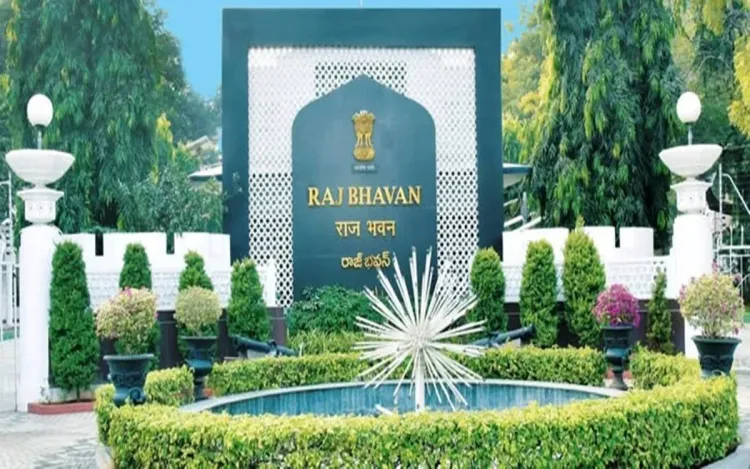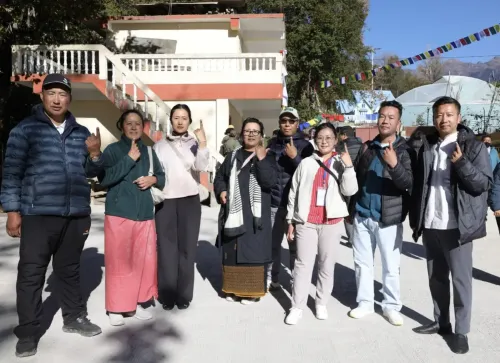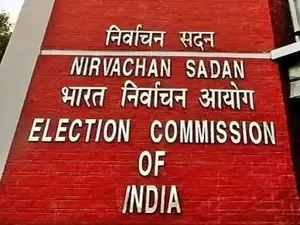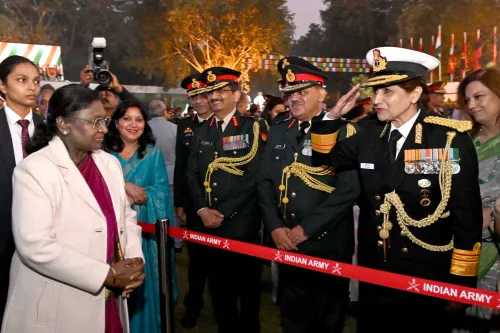Was a Computer Hard Disk Stolen from Telangana Raj Bhavan?

Synopsis
Key Takeaways
- The theft highlights potential vulnerabilities in security at high-profile government locations.
- The arrested individual was familiar with the security system, which raises questions about insider threats.
- The incident emphasizes the need for enhanced security measures to protect sensitive data.
- A thorough investigation is underway to determine any other individuals involved.
- This marks the first recorded theft of its kind at Raj Bhavan.
Hyderabad, May 20 (NationPress) A computer hard disk was reported stolen from Raj Bhavan, the official residence of the Telangana Governor in the city.
The incident took place on May 14, and the following day, police apprehended a hardware engineer employed on an outsourcing basis at Raj Bhavan. However, the details of the theft only emerged on Tuesday.
The hard disk was taken from room number 104 of the administration block, Sudarma building within Raj Bhavan.
It was on May 15 when a networking engineer arrived at the office and noticed that the computer system in the room was displaying a blue screen. Upon investigation, he discovered that the computer was logged into a different account and that the hard disk had been swapped with another.
Upon reviewing the CCTV footage, officials identified T. Srinivas, who entered the office wearing a helmet at 10:11 p.m. on May 14, despite it not being working hours. Srinivas allegedly carried out the theft after being suspended on the same day due to certain allegations.
Following a complaint from the IT Manager, police filed a case under sections 305 (A), 316 (5), and 331 of BNS.
Authorities arrested Srinivas, the accused hardware engineer, and recovered a hard disk from his possession.
Being familiar with the security measures, he had worn a helmet while accessing the computer room to execute the theft.
Police are currently investigating the motive behind the crime and whether there were any accomplices involved.
The complaint indicated that the stolen hard disk contained sensitive data, including licensed software, office files, user IDs, passwords, and IT inspection reports.
This theft at the high-security official residence of the Governor has raised concerns. Following this incident, officials have intensified security protocols.
The Raj Bhavan premises already operate under rigorous surveillance, featuring multiple security personnel and an array of CCTV cameras.
In light of this incident, additional security measures have been implemented, marking this as the first theft of its kind at Raj Bhavan.










